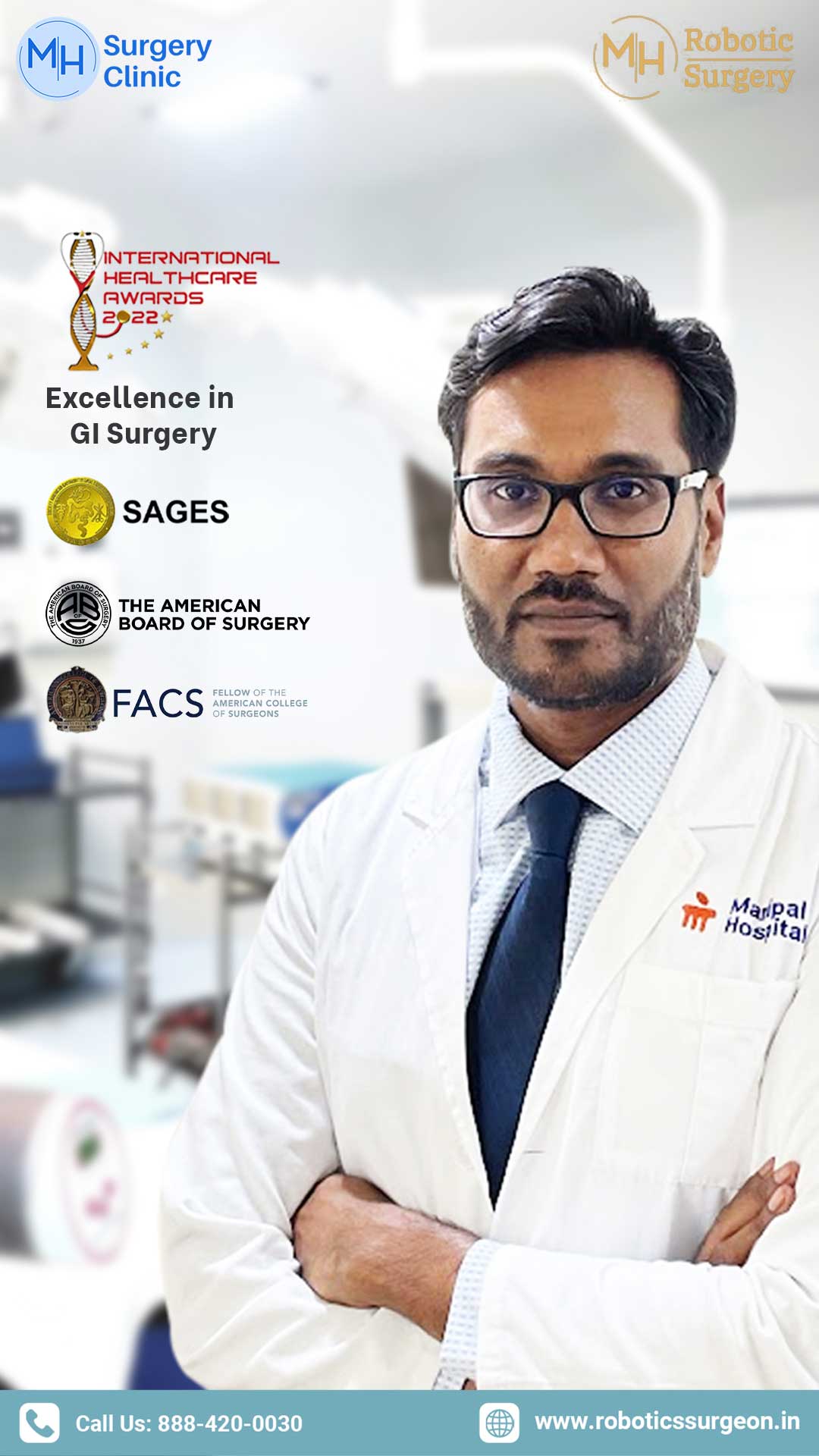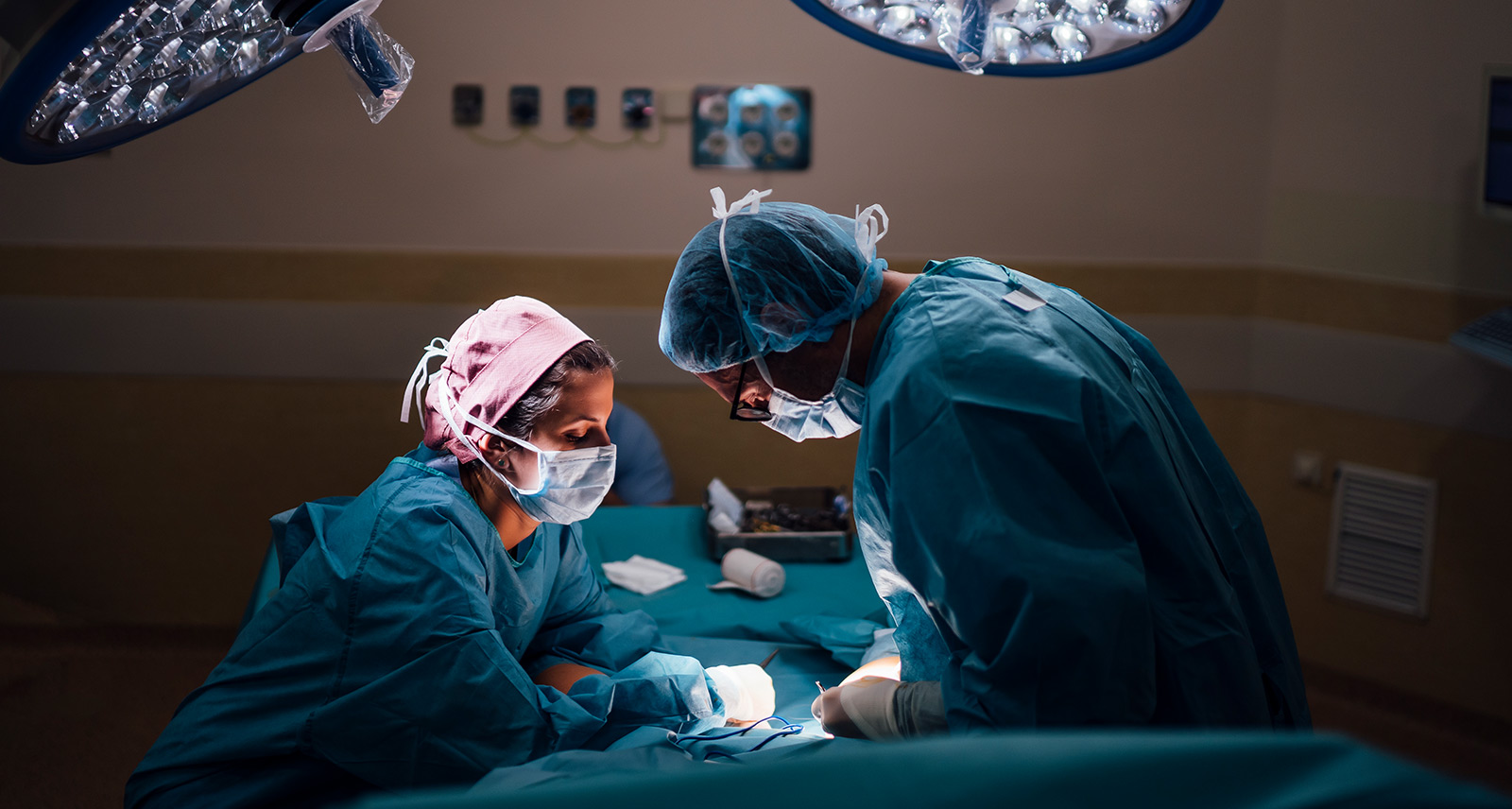
Robotic-Assisted Liver Surgery
Minimally Invasive Robotic Liver Surgery for Better Outcomes
Exploring The Landscape Of Robotic Liver Surgery

A cutting-edge method in contemporary medicine is robotic liver surgery, which employs robotic support to treat a variety of liver disorders with unmatched accuracy. With this novel approach, proficient surgeons operate robotic arms fitted with specific tools to carry out complex liver treatments. This technology allows for improved visualization, careful motions, and sensitive manipulation inside the abdominal cavity.
For the treatment of both benign and malignant liver tumors, it works like a miracle. Because of its accuracy, the robot can remove tumors precisely while protecting important blood veins and causing the least amount of damage to healthy tissue. Furthermore, compared to traditional open surgery, the minimally invasive nature of robotic surgery results in smaller incisions, less pain following surgery, and a quicker recovery.
This is a rapidly developing discipline that has the potential to significantly improve patient care by decreasing postoperative complications and improving surgical results. Its effectiveness, however, depends on the surgeon’s experience, the patient’s eligibility, and the particulars of the liver ailment being addressed.
The Role of Robotic Liver Surgery
Type of Robotic Liver Procedures
The field of liver surgery now offers more options thanks to robotic technology, which can perform a variety of operations with improved accuracy and quicker recuperation periods. Among the many varieties of robotic liver procedures are the following:
- Robotic Liver Resection: In this procedure, a section of the liver impacted by cysts, tumors, or other diseases is removed. With the help of robotic assistance, it is possible to precisely remove the damaged tissue and perform complex dissection while maintaining liver function.
- Robotic Liver Tumor Ablation: Robotic technology can help with tumor ablation when surgery is not an option. This is the process of destroying tumors with heat or cold without having to remove them physically.
- Robotic Liver Cyst Fenestration: With robotic support, large liver cysts can be excised or drained, reducing symptoms and averting recurrence.
- Robotic Liver Transplant Surgery: Although still in the experimental stage, robotic liver transplant procedures are being investigated to enhance graft placement accuracy and lowering complications. Liver transplants in Bangalore have witnessed significant advancements in this field, giving hope to patients across the country.
- Robotic Cholecystectomy during Liver Surgery: Robotic technology can help accomplish both liver surgery and gallbladder removal concurrently when necessary.
- Robotic Biliary Surgery: The biliary system can be rebuilt using robotic surgery in situations when there are strictures or obstructions in the bile duct.
Conditions Treated by Liver Transplant Hospitals in India
- Liver Tumors: It can be used to treat both benign and malignant liver tumors. Because of the robot’s accuracy, liver surgeons can remove tumors while protecting important blood arteries, bile ducts, and healthy liver tissue.
- Liver Cancer: Hepatocellular carcinoma is the most frequent type of primary liver cancer. A robotic liver transplant is an efficient way to remove localized liver tumors produced by this disease.
- Liver Metastases: Colorectal, breast, or lung malignancies are examples of tumors that have metastasized to the liver and are removed during the surgery.
- Liver Cysts: Robotic-assisted procedures can be used to treat large or symptomatic liver cysts, providing precise draining or removal while decreasing the risk of consequences.
- Biliary Strictures: Robotic surgery can be used to treat biliary strictures, or blockages, to restore normal bile flow and avoid more difficulties.
- Polycystic Liver Disease: Multiple liver cysts form in people with polycystic liver disease, a hereditary disorder. Removing large or troublesome cysts with the help of liver cancer operation can help manage symptoms.
- Focal Nodular Hyperplasia (FNH) and Hemangiomas: This surgery can be used to treat benign liver growths such as focal nodular hyperplasia (FNH) and hemangiomas that are causing symptoms or are in danger of rupturing.
- Liver Trauma: Robotic surgery can be utilized to repair damaged tissues in cases of trauma-related liver injury, reducing blood loss and consequences.
Numerous advantages, such as less pain, shorter hospital stays, and quicker recovery times, come with robotic liver transplant in Bangalore. Globally, liver surgeons are adopting these developments more frequently, as they are opening the door to better patient outcomes.
Liver surgery has historically been fraught with difficulties, frequently necessitating large incisions and protracted recuperation times. However, liver surgeons may now carry out difficult treatments with previously unheard-of accuracy and efficiency because of the development of robotic technology. With the help of robotic surgeons, doctors can now operate on the liver’s complex structure with unmatched precision because it gives them more control and finesse.
The fact the minimally invasive robotic liver resection is one of its main benefit. Compared with typical open operations, patients benefit from shorter hospital stays, less pain following surgery, and faster recovery times thanks to the use of small incisions and sophisticated instrumentation. This enhances the patient’s quality of life and expedites their return to normal activities in addition to promoting comfort.
Customized Treatment Approaches
The option of this surgery opens doors to cutting-edge treatment modalities that prioritize patient well-being and efficacy for those looking for a liver surgeon in Bangalore. It provides customized solutions to meet the specific requirements of each patient, whether the issue being treated is a liver tumor, cyst, or other hepatic condition.
Robotic liver transplant surgery has been transformed by robotic technology, opening up new options for patients in need of life-saving treatments. Liver transplant surgeons can execute complex grafting procedures with unmatched precision with the help of robotic surgery, increasing the likelihood that transplant recipients will experience success.
The precision of state-of-the-art technology combined with the experience of highly trained surgeons benefits patients undergoing this surgery. Liver surgeons in Bangalore can provide individualized treatments that put the comfort of their patients and their long-term success first by utilizing robotics.
Elevating Patient Care In Robotic Liver Transplant Surgery
All in all, it is a paradigm change in hepatic care, providing patients in Bangalore and beyond with access to cutting-edge procedures that push the envelope of surgical perfection. The field of liver surgery has a bright future ahead of it thanks to technological advancements. So, make sure to check out MH Robotic Surgery Clinic – the best Liver Transplant Hospital in India and take a step towards a better way of life.
Read Also: Pancreas Surgery, Rectal Polyps
We are making robotic surgery a new standard of care

Patient-Centered Care
Prioritize patient safety and well-being in the development and implementation of robotic care. Involve patients in the decision-making process, provide clear information, and address their concerns and preferences. Conduct rigorous clinical trials and studies.
Interdisciplinary Teams
A multidisciplinary team of experts, including clinicians, roboticists, engineers, data scientists, and healthcare administrators, to collaborate on this initiative. Encourage open communication and collaboration which leads to better patient outcomes.
Cost-Effectiveness
Assess the cost-effectiveness of robotic care and explore ways to make it more accessible to a broader range of patients. Collaborate with healthcare payers and providers to ensure reimbursement for robotic procedures.
Education and Training
Develop comprehensive training programs for healthcare providers, ensuring that they have the necessary skills and knowledge to use robotic systems effectively. Offer ongoing education and certification and update on the latest advancements.What to expect with robotic-assisted surgery
If you or someone you know is scheduled for robotic-assisted surgery, it’s natural to have questions about what to expect before, during, and after the procedure. Robotic surgery is a transformative medical technology that has revolutionized the field of surgery by enhancing the capabilities of surgeons and improving patient outcomes. Here’s an overview of what you can typically anticipate when undergoing robotic-assisted surgery:
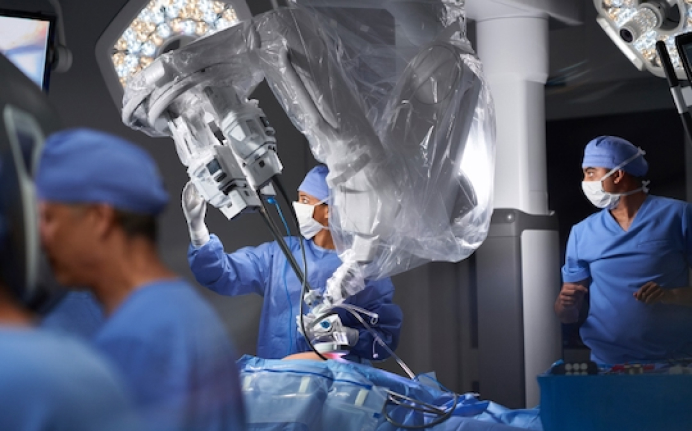
Before the Surgery
Consultation: You will have one or more consultations with your surgeon to discuss your medical condition, the surgical procedure, whether robotic-assisted surgery is the right option for you and any alternatives if there are any.
Preoperative Evaluation: Before the surgery, you may need to undergo several tests and evaluations to ensure you are a suitable candidate. This may include blood tests, imaging scans, and a review of your medical history.
Preparation: Your surgeon and healthcare team will provide specific instructions about how to prepare for the surgery. This may involve fasting for a certain period, discontinuing certain medications, and taking a shower with a special soap to reduce the risk of infection.
During the Surgery
Anesthesia: You will be given anesthesia to keep you pain-free and asleep during the surgery. The type of anesthesia (general or local) will depend on the specific procedure and your medical condition.
Operating Room Setup: In the operating room, the surgical team will position you on the operating table and prepare the surgical area. The robotic system will be set up, and your surgeon will be seated at the console.
Robotic Assistance: Your surgeon will control the robotic arms and instruments from the console. The robotic system provides enhanced precision and dexterity during the surgery.
After the Surgery
Recovery Room: After the surgery, you will be taken to a recovery area where you’ll gradually wake up from anesthesia. A nurse will monitor your condition closely.
Pain Management: You may experience some pain or discomfort after surgery. Your healthcare team will provide pain management medications as needed.
Hospital Stay: The length of your hospital stay will vary depending on the type of surgery and your individual recovery progress. Many robotic-assisted surgeries result in shorter hospital stays compared to traditional open surgery.
Why choose Robotic Surgery
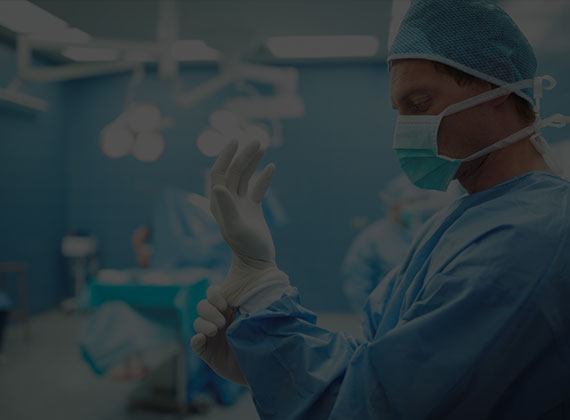
Enhanced Vision
The robotic system delivers 3D high-definition views, giving your surgeon a crystal clear view of the surgical area that is magnified 10 times to what the human eye sees. This helps the surgeon perform surgery with greater accuracy and smoothness.
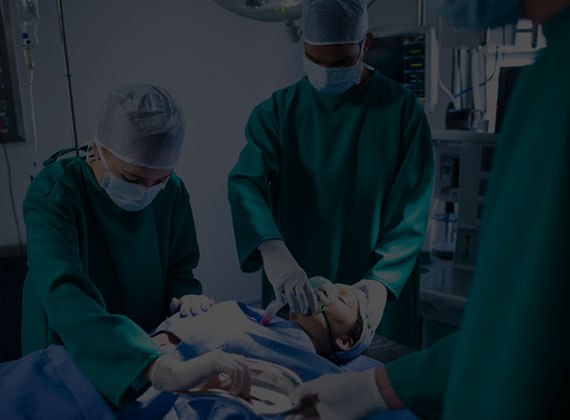
Precise movements
Robotic systems provide high precision and delicate motor control, lowering the possibility of human error. Surgeons utilize tiny devices that mimic human hands. Built-in tremor-filtration technology helps in smooth and precise movements.
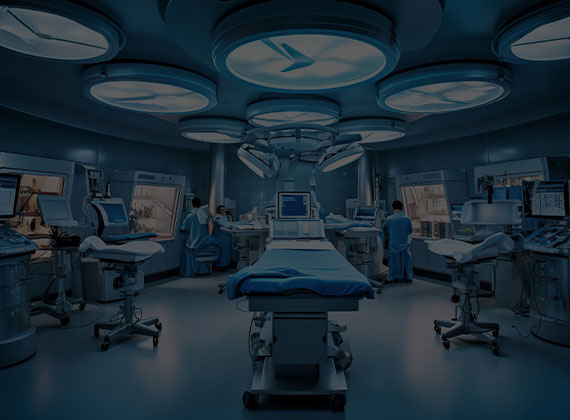
Minimal Blood loss
Robotic surgery is minimally invasive, meaning it involves small incisions wiith minimal tissue damage resulting in less pain, and reduced scarring. Less blood means results in faster healing, less time in hospital and return to life sooner than expected.
FAQs
Liver cancer operation may involve liver transplantation, tumor resection, or robotic liver ablation for liver tumor. These operations are the specialty of Dr. Manjunath Haridas, who uses cutting-edge methods to provide the best results. Our team of experts evaluates every case on an individual basis, guaranteeing tailored treatment regimens that put the health of patients undergoing liver cancer procedure first.
Tumor resection, liver resection, and liver transplantation are some common types of liver surgery. These treatments are the specialty of Dr. Manjunath Haridas, who employs cutting-edge methods for accurate interventions and the best possible results. Our skilled staff creates individualized treatment programs to address various liver disorders, guaranteeing that every patient receives complete care.
The price of a liver transplant in Bangalore varies according to the specific needs and circumstances of each patient. MH Robotic Surgery Clinic- best liver transplant hospital in India provides thorough evaluations to establish individualized treatment regimens, along with open dialogues regarding related expenses. While delivering top-notch care, our staff makes sure that financial considerations are clearly understood.
The availability of organs determines the length of the liver transplant waiting list in India. Timely evaluations are given top priority at MH Robotic Surgery Clinic, and patients are given precise information regarding the waiting period.
A prognosis of a patient following liver surgery is contingent upon a number of variables, including the underlying ailment and general health. By combining cutting-edge technology and skilled liver surgeons, Dr. Manjunath Haridas prioritizes excellent results, increasing patients’ chances of long-term survival and full recovery after liver surgery.
Operating on the liver is the specialty of a hepatobiliary or liver surgeon. The staff at MH Robotic Surgery Clinic is made up of proficient liver surgeons who know how to use advanced robotic methods for accurate treatments and better patient outcomes.
